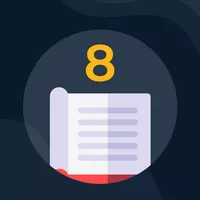Kapag handa ka na maaari kang makipag-usap sa isang katutubong nagsasalita.
When|ready|you|already|you can|you|to engage in|talk|to|a|native|speaker
When you are ready you can talk to a native speaker.
Als je er klaar voor bent, kun je praten met een native speaker.
Kiedy będziesz gotowy, możesz porozmawiać z native speakerem.
Quando estiver pronto, você pode falar com um falante nativo.
Maaari kang makipag-usap sa isang tutor.
You can|(informal second person singular pronoun)|to engage in||to|a|tutor
You can talk to a tutor.
Je kunt met een docent praten.
Ito ay masaya.
This|is|happy
This is fun.
Dit is leuk.
Nakikipag-usap ka sa isang tutor gamit ang Skype.
are having||you|with|a|tutor|using|the|Skype
You talk to a tutor using Skype.
Je praat met een tutor via Skype.
Maaari mong piliin ang tutor na gusto mong kausapin.
Can|you|choose|the|tutor|that|you want|you|to talk to
You can choose the tutor you want to talk to.
Je kunt zelf kiezen met welke tutor je wilt praten.
Maaari kang magkaroon ng maraming tutor.
You can|have|have|of|many|tutors
You can have many tutors.
Je kunt meerdere docenten hebben.
Magsalita ka kapag gusto mo.
Speak|you|when|want|you
You talk when you want.
Spreek wanneer je wilt.
Pagkatapos mong makipag-usap sa isang tutor makakatanggap ka ng ulat sa pag-uusap.
After|you|to have||to|a|tutor|you will receive|you|a|report|on||conversation
After you talk to a tutor you will receive a conversation report.
Nadat je met een tutor hebt gesproken, ontvang je een gespreksverslag.
Ang ulat ng pag-uusap ay ituturo ang iyong mga pagkakamali.
The|report|of||conversation|will|point out|the|your|plural marker|mistakes
The conversation report will point out your mistakes.
Het gespreksverslag wijst je op je fouten.
Maaari kang lumikha ng mga LingQs mula sa iyong mga pagkakamali sa pag-uusap.
You can|(pronoun)|create|(particle)|(plural marker)|LingQs|from|(preposition)|your|(plural marker)|mistakes|(preposition)||
You can create LingQs from your conversation mistakes.
U kunt LingQ's maken van uw gespreksfouten.
Sa una mahirap makipag-usap sa isang katutubong nagsasalita.
At|first|hard|||with|a|native|speaker
At first it is difficult to talk to a native speaker.
In het begin was het moeilijk communiceren met een native speaker.
Sa lalong madaling panahon ikaw ay magsasalita ng mas mahusay at mas mahusay.
As|soon|easy|time|you|will|speak|in|more|well|and|more|well
Soon you will speak better and better.
Straks praat je steeds beter.

